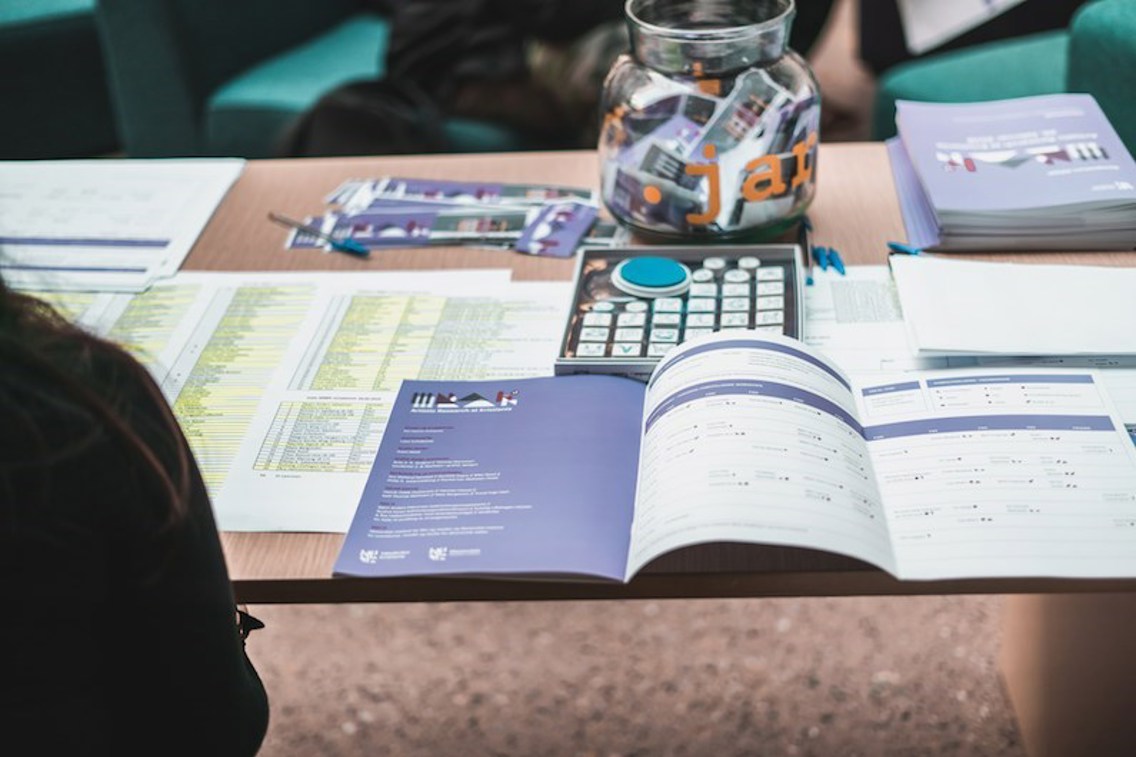Call for Contributions AR@K23: arts/research/teaching - exploring the role of the artist/educator as artistic researcher
The next AR@K symposium at Kristiania in Oslo will take place on 14 & 15 March 2023 and we are currently looking for contributions from across the fields of artistic research.
Artistic Research @ Kristiania (AR@K)
Call for Contributions 2023: arts/research/teaching - exploring the role of the artist/educator as artistic researcher
Deadline for abstracts: 29 January 2023
Email: arak@kristiania.no
Artistic research is knowledge production. And for new knowledge to be applied it must be disseminated, experienced, and turned into embodied knowing. As practitioners, researchers, and educators we ask ourselves daily: how do we teach arts?
As practitioners we draw from our own experiences. We enter a productive exchange with what we perceive as our own short-comings and doubts and we explore creative notions such as uncertainty, improvisation, and collaboration.
As researchers we oscillate between artistic and academic ways of contemplating through and with arts. We embrace the centrality of practice to artistic research, and we are not afraid of what Henk Borgdorff has called “unfinished thinking” (2012).
As educators, however, we face a variety of practical, epistemological, socio-political, ideological, ethical, and institutional challenges. Teaching arts requires us to constantly negotiate dichotomies of the general and the specific, addressing arts' manifold provocations and contradictions, as well as facilitating a fruitful dialogue between existing practical and theoretical paradigms.
Estelle Barrett (2010) frames artistic research as “a new species of research”, invoking the term “generative” as a third alternative to quantitative and qualitative forms. Teacher and researcher Brad Haseman has argued that an artwork embodies research findings which are symbolically expressed, though not expressed through numbers and words (2006). Yet, it is numbers and words we encounter most in the institutionalized contexts in which we are supposed to teach arts and generate knowledge about creative and artistic processes.
How do we reconcile the demands of institutions of higher education – including quality assurance and economical restrictions - with the task of encouraging students to critical thinking as well as indulging in free-thinking creative processes? Furthermore, how do we respond to the criticism of elitism and academization within the fields of higher arts education? How can we ensure, develop, and strengthen the societal benefits and relevance of teaching arts against the backdrop of an increasingly neoliberalist logic? And how do we respond to the challenges of the so-called culture wars in our globalized societies?
And, last but by no means least, how do we assess and respond to the increasingly varying states of crisis experienced by teachers and students alike?
It’s time to get together and reaffirm our roles as educators and mediators of artistic means and processes. Time to rekindle the desire and necessity to explore and convey what the arts mean and why we value them.
We are very excited to announce the return of the AR@K symposium, this time as a two-day event, at Kristiania University College in Oslo, Norway. The upcoming symposium/conference will take place on 14 and 15 March 2023, and we are looking for contributions from across the field of artistic research, covering all kinds of forms, styles, and genres. We are encouraging artists and academics alike to engage with next year’s theme and to share their knowledge and reflections on how we best teach in, through and with arts and artistic processes, based on practice-based and practiced-led approaches.
Participants are encouraged to, but not limited, to explore topics such as:
- Methods of artistic teaching and pedagogy
- The artistic self as pedagogical tool
- Teaching as performance
- Teaching craft vs teaching creativity
- The role of the mentor
- Researching artistic teaching
- The ethics of teaching arts
- Teaching arts across cultural contexts
- Grading artistic results and project feedback
- Challenges and opportunities in student engagement
- Talent development
- Enabling artistic perspectives, finding personal voices and unleashing potentials
- Sociopolitical challenges to higher arts education
- Negotiating student identities
We are looking forward to abstracts for possible contributions. The abstract must have a title and be limited to 200 words. In addition to traditional paper-presentations and lecture talks, we encourage a variation of formats, such as performances, workshops, posters, screenings, and installations (technical equipment and stage facilities, such as black boxes, are available). Presentations requested in English or any Scandinavian language.
Regardless of format, presentations at the symposium should be a maximum of 20 minutes in length + additional 10 mins for questions and comments. If the standard time allotment is insufficient, please state your needs clearly in the abstract. Please provide your name, affiliations and contact information. Also, please include a brief biographical statement or CV (100 words) detailing your previous artistic and research practice.
Please note: though exceptions can be made, we intend to conduct the symposium as an onsite physical event without digital or online presentations.
Furthermore, an anthology publication, including a selection of this years’ contributions is planned. If you are selected as a participant to the symposium, the organizing committee might contact you after the event for a possible contribution to the AR@K anthology.
Please send your abstracts to arak@kristiania.no. The deadline for abstracts is 29 January 2023.
For previous contributors and the program-schedules:
Please feel free to share this call for contributions in your respective communities.
The Artistic Research Group at Kristiania, Oslo
December 2022
